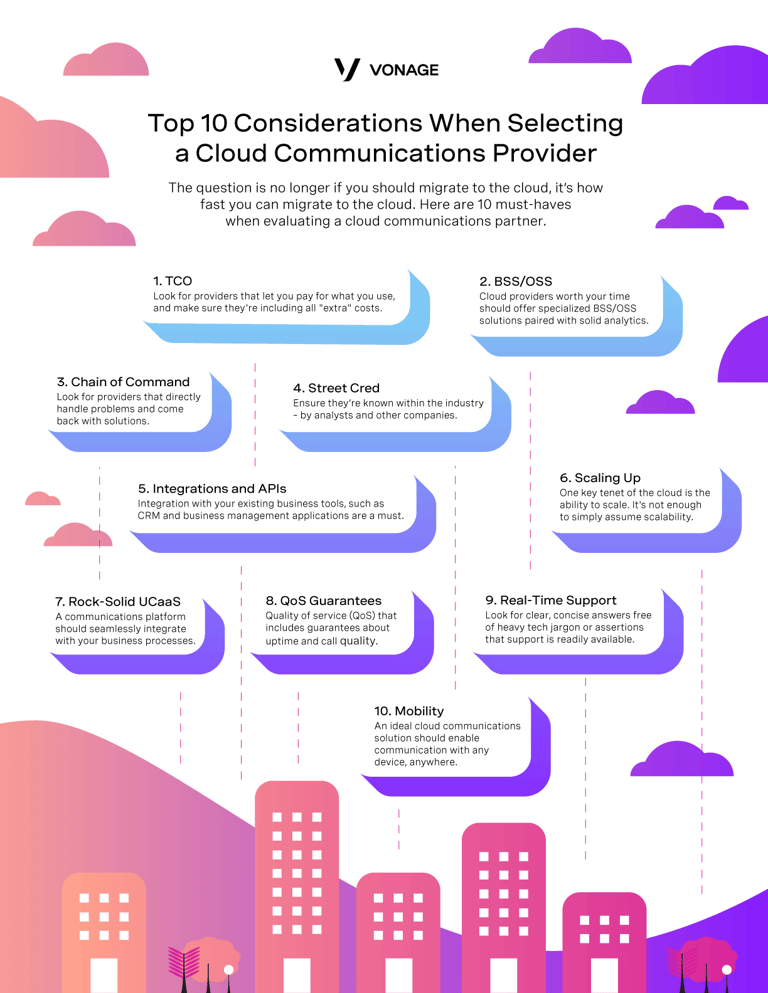5 Advantages of Cloud Migration Every Business Should Know
The cloud is a multifarious thing. Sometimes talking about the advantages of cloud migration can feel like discussing the advantages of, well, plain old computing. In the enterprise alone, the technology's presence is less common than constant, a testament to the business world's willingness to dive into an advancement head-first when the benefits are too plentiful to ignore. That said, many businesses find new, unexpected things to love once they undergo their own cloud migration. If your company is thinking about moving certain workloads or systems to the cloud, here are just a few ways the benefits of cloud migration might exceed your expectations.
1. A Tighter Talent Pool
Consider for a moment the way online resume-posting and -searching services revolutionized the ways businesses found people. Now imagine a workplace where fresh talent can carry out tasks as efficiently from their corner of the world as they can in the home office. Cloud provides the framework for both, and the results are a stronger, more adaptable working world, giving employees the ability to work from anywhere.
In other words, your talent supply doesn't just grow with cloud—it becomes more coherent.
2. Better IT Resource Management
As business technology has evolved, so has the role of IT workers. Once upon a time, their job was primarily to maintain servers, troubleshoot office equipment, and ask "Have you restarted your computer?" countless times a day. Today, IT workers have put on quite a few more hats—they're the experts who help your company leverage the latest technology, develop new business applications, and drive innovation. The majority of IT resources, however, still get sapped by routine maintenance, such as installing updates, maintaining servers, and troubleshooting faulty applications.
With cloud tools at their fingertips, IT workers can spend more time on new, strategic projects that contribute to the company's bottom line.
3. A Lighter Carbon Footprint
Organizations today are more eco-conscious than ever, with initiatives that challenge employees and customers alike to do business in a way that has less impact on the environment. And while paperless billing, donations, and eco-friendly office practices all have plenty of value to offer, there's something to be said for subtler changes.
That brings us to one of the many advantages of cloud migration: When you use cloud tools, you consolidate the number of backend machines you need to handle the job. That means less electricity used to power those machines—all in a solution that can scale perfectly to the organization's needs at will, further reducing waste.
4. Increased Functional Mobility
The cloud doesn't just make your IT department more productive or keep your light bill lower, though. It has numerous productivity boosts to offer as well. Many of these come from the technology's ability to connect devices from essentially any location.
Consider an enterprise dealing with a longer-than-usual IT outage, the kind that requires more than a restart. With the right benefits of cloud migration in place, employees can seamlessly switch to their mobile devices or laptops and resume the call/videoconference/collaborative file edit they were working on, with no lost work and minimal impact to overall productivity. Throw in a million different potential disasters (major and minor) that might temporarily restrict access to the usual devices or systems, and you have an endlessly flexible tool that excels at mobility.
5. Less Siloing
As remote work becomes the norm, a new set of IT challenges can emerge when it comes to linking core information systems across locations, or even within a single location. In a less-than-ideal setting, employees in various departments may become enmeshed in tools that are disparate beyond reasonable business need—and when communications are impacted by this needless siloing, everyone suffers.
Thus, of all the benefits of cloud migration, the last on our list is one that deserves more credit than it gets: the ability to get the whole business talking again. There needn't be animosity between departments for a technological rift in communications to occur, and cloud technology can be just what it takes to bridge the gap.
Bonus Infographic: Exploring The Right Cloud Communications Partner
With time of the essence, you’ll likely be exploring partnerships with cloud providers that will help keep your business moving as usual in these challenging times. Many organizations will start with a request for proposal (RFP). When choosing a cloud provider, set the right terms in your initial RFP to ensure you make the right selection. An RFP allows you to shop around among multiple providers to find the right one for your business. Of course, missing the mark on your RFP could mean getting stuck with a completely wrong cloud provider experience.
To save you from that scenario, check out the infographic below highlighting 10 must-haves for any enterprise cloud RFP, and be sure to dig deeper when you are ready to begin.

Which Advantages of Cloud Migration Appeal to You?
Going by the box alone, cloud technology is a logical next step for any business currently lacking the medium's flexibility, utility, and growing viability in unique work settings. If compelling enough to convince many businesses on their own merits, the advantages of cloud migration only grow more persuasive when you consider the secondaries. Wherever you are in your own migration plans, be sure to think out all the upsides you can reap—there might be more than appear at first glance.